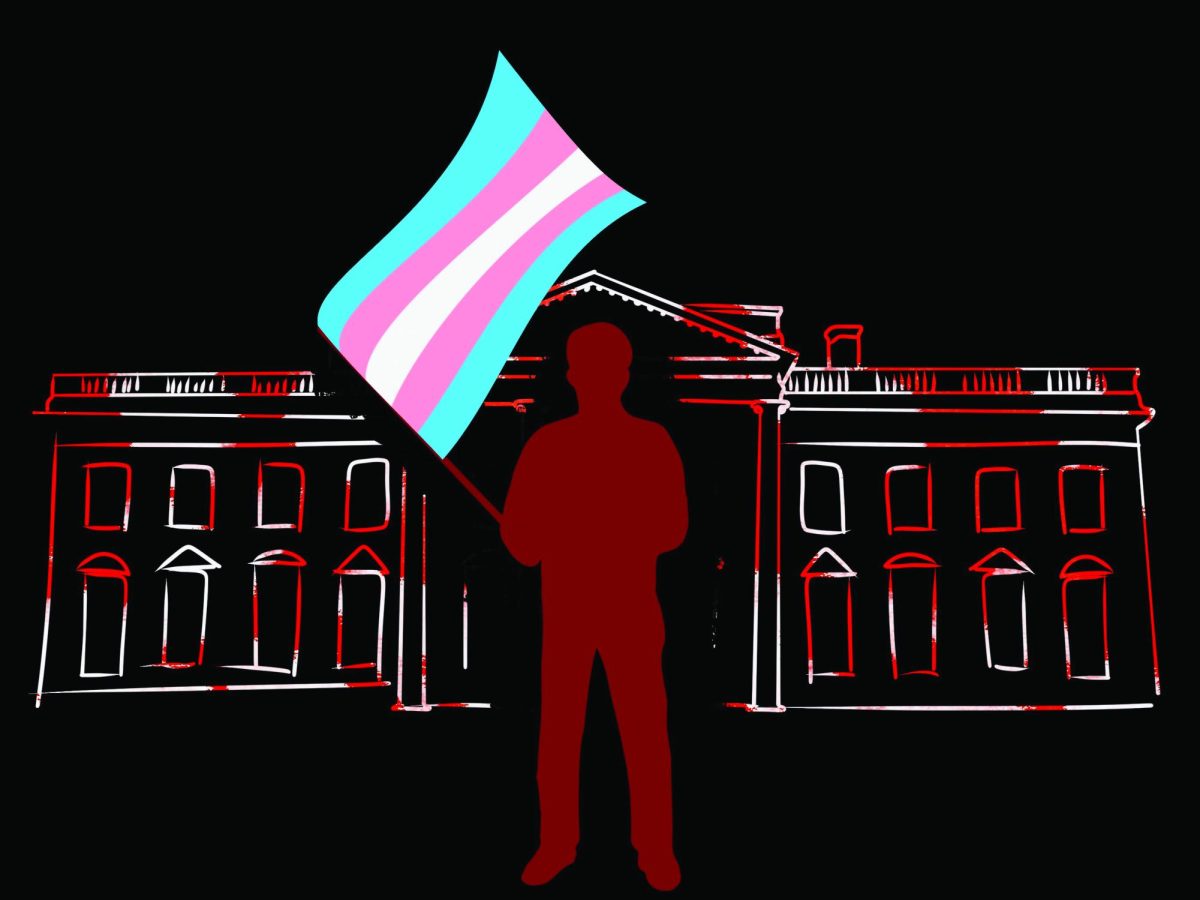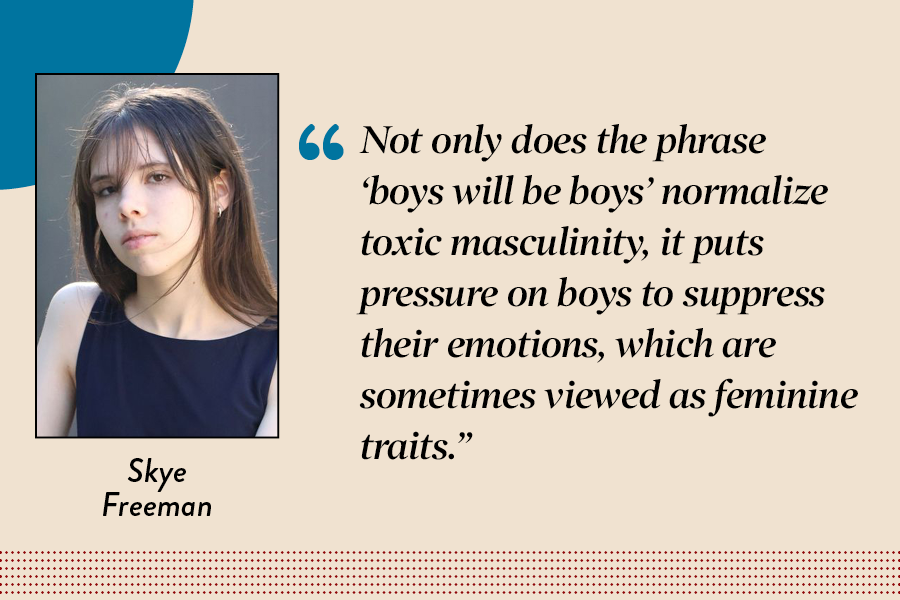While picking up my little brother from Lab one afternoon, I noticed a teacher approach her student, attempting to confront him about his disruptive behavior in class. The student outright ignored his teacher and walked down the hallway, laughing.
As we started heading home afterward, my brother commented that lots of his friends acted the same way. I asked him whether he thought such behavior was bad. He shrugged his shoulders and said: “Boys will be boys.”
According to the Oxford English Dictionary, the earliest recorded use of the phrase was in 1770, and it has been abused ever since. It lightheartedly dismisses any negative act committed by boys and men and can be found in bullying to sexual assault. Not only does the phrase “boys will be boys” normalize toxic masculinity, it puts pressure on boys to suppress their emotions, which are sometimes viewed as feminine traits.
Although I hardly hear the phrase explicitly said in school, I noticed how it came into play while growing up. Most of the time in lower and middle school, if male students caused trouble, teachers would easily give up on disciplining them. Rather than choosing to work with the students and seek to find the root of their trouble-making tendencies, they’d be dismissed and shoved into the stereotype that trouble-making is an unchangeable trait in boys, as if inherited through genetics.
In high school, it varies. I’ve had teachers who don’t do anything about misbehavior, and as a result, the whole class is disrupted. In other instances, some teachers punish all of the male students in our class if only one student misbehaves. Regardless, they are treated much differently to female students, which results in frustration throughout the student body.
In a study published by the European Journal of Personality, researchers tracked the values, personalities and academic achievements of 4,100 16-year-old boys and girls in Finland, seeking to answer whether gender is binary from birth. They found that there are hardly any specific “boyish” or “girlish” personality traits or ambitions. Thus, the phrase “boys will be boys,” which implies that the way boys act is defined through genetics, does not stand true.
The fact that it is still used today concerns me. My brother had been taught that phrase somewhere, after all. Instead of encouraging gender-stereotypical thinking that justifies aggressive behavior and suppresses children into generalizations based on their identity at birth, parents, teachers and students should make the effort to eliminate the phrase, and other gender-based sentiments, from their vocabulary.

























































Janet Atbesman • Jan 10, 2025 at 11:16 am
Our language is gender based but disrespectful behavior is not. Perhaps one way to eliminate the way we think about these matters is to teach inclusive language that eliminates gender biases.
As a grandparent, I am interested in what the boy’s parents, teacher and administrators are doing to correct this child’s disrespectful behavior.
Your article is an act of courage on behalf of all concerned. Bravo!